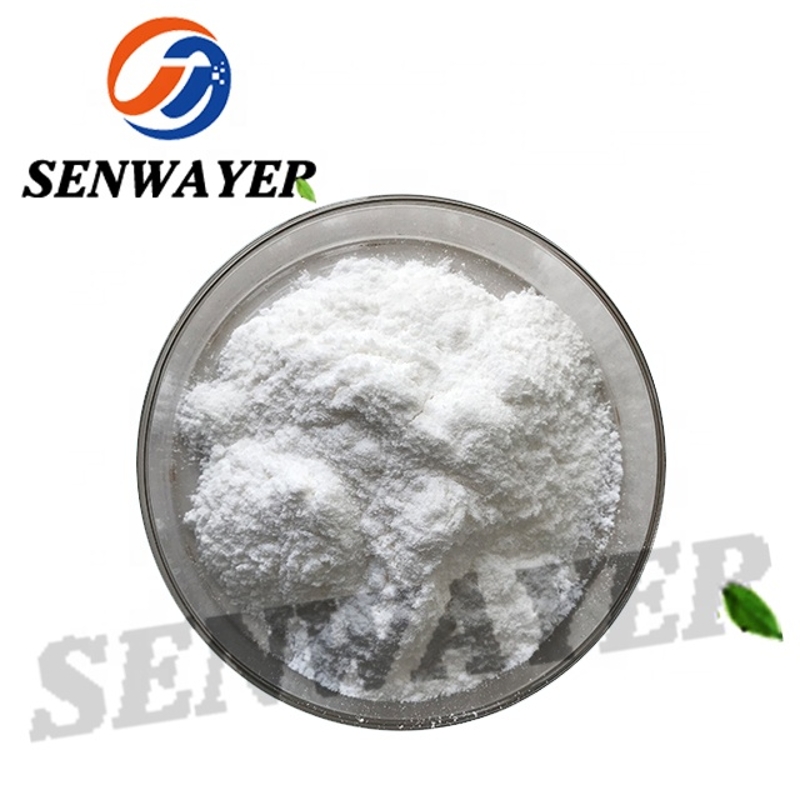-
Categories
-
Pharmaceutical Intermediates
-
Active Pharmaceutical Ingredients
-
Food Additives
- Industrial Coatings
- Agrochemicals
- Dyes and Pigments
- Surfactant
- Flavors and Fragrances
- Chemical Reagents
- Catalyst and Auxiliary
- Natural Products
- Inorganic Chemistry
-
Organic Chemistry
-
Biochemical Engineering
- Analytical Chemistry
-
Cosmetic Ingredient
- Water Treatment Chemical
-
Pharmaceutical Intermediates
Promotion
ECHEMI Mall
Wholesale
Weekly Price
Exhibition
News
-
Trade Service
Image: Professor Matt Griffin, Dr.
Veronica McInerney, Executive Director of HRB's Clinical Research Facility, Galway and Nurse Michelle Hennessy meet with Mr Brian Curran, who participated in Galway's NEPHSTROM clinical trial
.
The University of Galway, in collaboration with the European Union's Horizon 2020-funded NEPHSTROM Consortium, has announced promising results
of a new cell therapy trial for people with diabetes.
The NEPHSTROM clinical trial is taking the first steps to investigate the value of a novel type of cell therapy for adults with type 2 diabetes and worsening kidney disease, despite the best drug treatments
.
The results of the NEPHSTROM clinical trial were presented
at the American College of Nephrology Kidney Week meeting in Orlando, Florida, in November.
Studies have shown that carefully selected single-dose intravenous doses of ORBCEL-M in adults with worsening kidney disease due to diabetes are safe compared with placebo and are associated with
better preservation of kidney function.
After receiving ORBCEL-M treatment, patients enrolled in the trial were closely followed
for 18 months.
Orbcell-m cell therapy is an MSC preparation made from healthy bone marrow that was discovered and developed
in Galway by Orbsen Therapeutics Ltd, a spin-off company at the University of Galway.
The clinical trial was led by IRCCS, the Mario Negri Institute of Pharmacology in Bergamo, Italy, and conducted jointly at
leading medical centers in Gauvey, Bergamo, Birmingham and Belfast.
Professor Matt Griffin, a trial researcher, senior researcher at the University of Galway's Institute for Regenerative Medicine (REMMEDI) and consultant nephrologist at Galway University Hospital, said: "There are nearly 250,000 people living with diabetes in Ireland and we know that more than 40% of them have evidence of kidney disease – often referred to as diabetic nephropathy or DKD
for short.
"In type 2 diabetes, up to one-third of DKD patients experience worsening kidney function
, despite the best available drug treatment.
These people are at high risk of needing dialysis or kidney transplantation in the coming years, both of which are complex and have the potential for serious complications
.
"At NEPHSTROM, our goal is to ensure that cell therapies such as orbcell-m, are safe and can slow the progression of DKD to help more people with diabetes avoid the need
for dialysis or transplantation.
" Excitingly, our first analysis of trial results supports this goal
.
”
Dr.
Steve Elliman, who discovered the ORBCEL-M therapy, is chief scientific officer
at Orbsen Therapeutics.
Dr.
Elliman said: "At Orbsen Therapeutics, our motivation is to improve patient care
.
People with diabetes with progressive kidney disease eventually need dialysis, which often requires a kidney transplant
.
While dialysis can improve the quality of life for people with kidney failure, it is expensive and does not prevent further decline
in kidney function.
In addition, dialysis takes 4 hours each time, 3 times a week, which presents logistical and financial challenges
for patients.
Our goal with ORBCEL-M is to address systemic inflammation and improve kidney function so that patients do not need dialysis or kidney transplantation
.
WE ARE ENCOURAGED
BY THE SAFETY AND INITIAL EFFICACY SIGNALS REPORTED IN PATIENTS WITH DKD REPORTED IN THE NEPHSTROM TRIAL.
WE LOOK FORWARD TO CONTINUING OUR COLLABORATION WITH THE UNIVERSITY OF GALWAY AND NEPHSTROM PARTNERS TO ADVANCE THIS NEW DRUG
THROUGH PHASE THREE EFFICACY TRIALS AND MARKET APPROVAL.
" ”
Dr.
Veronica McKinnerney, Executive Director of HRB's Clinical Research Facility at Galway University, said: "Progress on new treatments is simply not possible
without patients participating in clinical trials.
We are fortunate to have the Galway HRB Clinical Research Facility, a clinically equipped space to observe and treat patients
in trials.
WE HOPE THAT FUTURE GENERATIONS WILL BENEFIT FROM PATIENTS' WILLINGNESS TO PARTICIPATE IN TRIALS, SUCH AS THE NEPHSTROM TRIAL
.
”
Professor Timothy O'Brien, Director of the University of Galway Institute for Regenerative Medicine (remmedi), Consultant Physician in the Department of Endocrinology at Galway University Hospital and overall leader of the NEPHSTROM project, said: "The ecosystem at Galway University aims to facilitate and lead international trials
of this nature.
The GMP cell therapy manufacturing facility at the University's Centre for Cell Manufacturing Ireland, as well as the HRB Clinical Research Facility, in close collaboration with Salta University Healthcare Group and REMEDI, have been instrumental
in making the progress of this potential new therapy possible.
Funding and help from SFI, the Higher Education Authority and the Health Research Council to establish this ecosystem, as well as funding from the European Commission, made this progress possible
.
”







